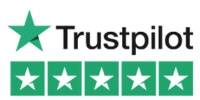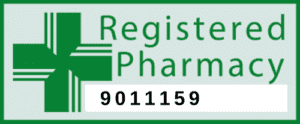- Mon - Fri: 9:00 - 17:00
- 01493 600610
Meningitis ACWY Vaccine
Protect Yourself with Meningitis ACWY Vaccination at Online Chemist
At Online Chemist, we prioritize your health and safety. That’s why we offer convenient meningitis ACWY vaccination services to protect you against this serious bacterial infection.
Meningitis ACWY is caused by several strains of bacteria, including Neisseria meningitidis, and can lead to severe illness or even death if left untreated.
Our experienced healthcare professionals will administer the meningitis ACWY vaccine in a safe and sterile environment, ensuring your comfort and peace of mind.
Don’t wait until it’s too late – schedule your meningitis ACWY vaccination appointment with us today and take the first step towards safeguarding your health.

Are you planning for Hajj or Umrah?
At our travel clinic, you will find a comprehensive travel health advice and vaccination service that tailored according to your need.
Meningitis Vaccination in Great Yarmouth

Meningitis vaccination schedule:
1 dose
Boosters:
You won’t need a booster to stay protected but if required for a certificate, you can have one after 3 years.
Who needs it?
- Advised if going to countries at risk and mixing closely with local population
- Compulsory visa requirement for the Hajj or Umrah.
- Certificate becomes valid 10 days after vaccination.
Age restrictions:
Over 1 year
How much will it cost?
Vaccine & Certificate – £60
No consultation fee
Hajj & Meningitis Vaccination
The Hajj pilgrimage:
The Hajj is the annual religious pilgrimage to Mecca, Saudi Arabia involving around 3.7 million pilgrims from around the world.
The Hajj takes place from the 8th through the 12th of Dhu al-Hijja, the last month of the Islamic year. As the Islamic calendar is lunar, the timing of Hajj varies with respect to the Gregorian calendar.
Umrah is a similar pilgrimage that can be undertaken at any time of year.
Middle East respiratory syndrome coronavirus:
Cases of Middle East respiratory syndrome coronavirus (MERS-CoV) in patients from Saudi Arabia continue to be reported to the World Health Organization.
The risk of infection with MERS-CoV to UK residents travelling to the Middle East is very low. The risk may be higher in those with exposure to specific risk factors within the region such as camels (or camel products) or the local health care system.
Public Health England advises that you should:
- Avoid all contact with camels and sick animals.
- Practise good general health measures, such as regular hand washing with soap and water, at all times but especially after visiting farms, barns or market areas.
- Avoid raw camel milk and/or camel products from the Middle East.
- Avoid consumption of any type of raw milk, raw milk products and any food that may be contaminated with animal secretions unless peeled and cleaned and/or thoroughly cooked.
Meningitis ACWY:
Following outbreaks of meningococcal disease in past years, there is a requirement for all Hajj pilgrims to show proof of meningococcal vaccination before Hajj visas can be issues. Hajj pilgrims must have had a quadrivalent (A/C/Y/W135) meningococcal vaccination within the previous 3 years (for polysaccharide vaccines) or previous 8 years (for conjugate vaccines) and at least 10 days before arriving in Saudi Arabia.
Travellers from countries or areas at risk of Yellow Fever must also carry a valid Yellow Fever vaccination certificate.
Seasonal influenza vaccine is also recommended for pilgrims. You should also discuss with your GP or travel clinic the need for additional vaccines such as those against pneumococcal pneumonia, hepatitis A, hepatitis B and typhoid.
Vaccinations should be completed at least 2 weeks prior to departure.
Tips for healthy travel:
- Hajj pilgrims should stay well hydrated, wear sunscreen, and seek shade when possible. Some rituals may also be performed at night to avoid daytime heat.
- Drink water and beverages that are sealed or known to have been purified, and eat food that is served piping hot or fruit that you have peeled yourself.
- Wash your hands frequently with soap and water or disinfectant hand cleanser.
- For shaving, be aware that unclean razors can transmit viruses such as hepatitis B, hepatitis C, and HIV. Travellers should be shaved using disposable blades at officially designated centres, or use their own disposable blades and avoid sharing personal hygiene tools.
- Follow road safety rules to avoid injuries. Take extra care when crossing roads and always wear a seatbelt when travelling in motor vehicles.
- Try to avoid the most densely crowded areas during Hajj and, when options exist, perform rituals at non-peak hours.
Resources:
- If you are planning to visit KSA to undertake Hajj or Umrah, please read the factsheet where further information is available.
- GOV.UK click here.
- How to Perform Hajj Step By Step Complete Video.





